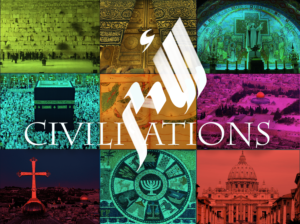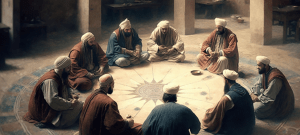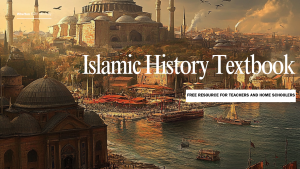Reclaiming our heritage
The idea behind the Civilisations project is to empower through knowledge – knowledge of our past and understanding our present, by returning wholeheartedly to the unique and comprehensive worldview engendered by the Final Revelation.
Shaykh Ridhwan ibn Saleem, who initiated the Civilisations project, is an Islamic Scholar whose teachers include Shaykh Hamza Yusuf, Shaykh Siraj of Liverpool, Shaykh Muhammad al-Yaqoubi, and Shaykh Akram Nadwi (full bio here) Shaykh Ridhwan also holds University of London degrees in Medicine and Anthropology. He is currently Senior Lecturer at London College of Islamic Studies in West London.
The Civilisations syllabus comprises of three consecutive courses:
- Civilisations History course – A Story of Two Civilisations
- Civilisations Geopolitics course – Power in the West
- Civilisations Eschatology course – The End of Civilisations
The courses are designed to be completed consecutively. The idea is that knowing our history is essential to understanding our present situation. And understanding our history and our present situation is vital to understanding the information in the Holy Quran and Hadiths about the Signs of the End Times (Eschatology).
The History course will be running again in September 2021 insha Allah, both face to face and online.
Students who complete the History course will be invited to join the subsequent Introduction to Geopolitics and Eschatology courses thereafter.
Sheikh Ridhwan: I felt that the history of Islamic civilisation was not very well known among the Muslim community. The Seerah and the Khulafa Rashidoon period are taught in madrassahs and such places, but the rest of the 1400 years of Islamic history is quite neglected, despite it being an important part of our heritage. It is very important for people to know their history, because to know our history is to know who we are and where we came from. In this regard, there is a big gap in the curriculum in Muslim organisations, madrassahs, schools etc.
As Muslims we are a community that has a mission. We are witnesses against mankind, soldiers of the truth. So, we’re not just a passive community, we have a status among mankind, and this makes it important for us to understand the world we live in. And we cannot understand our contemporary situation unless we know the history, hence our history course is not just the history of Islamic civilisation in isolation, but that of Western civilisation too. The linkages between the two are so extensive; they are much more intertwined than many people realise.
Finally, the signs of the Last Day are one of the major branches of knowledge in classical Islamic sciences. However, to understand the sources in the Quran and Hadith which address these signs, as well as prophecies about things that will occur after the Prophet Muhammad (s.a.w), we need to understand the historical events of the last 1400 years and the way things have unfolded. Otherwise we cannot truly understand the information within this field of knowledge.
That was the thought behind the Civilisations Syllabus- that we bring Islamic and Western history together with Geopolitics and Eschatology to fill a major gap in Muslim education within western societies.
Question: What is the meaning behind the name “Civilisations”?
Sheikh Ridhwan: The word “Civilisations” is important because, for me, it is the meaning of “Ummah” in the Quranic paradigm. And the idea of Ummah is quite central to our Quranic worldview.
When the Quran refers to “Al-Ummam” it is sometimes translated as “Nations” or “a People” but if you really think about it, the best translation would be “Civilisations”. This is because a Nation/a People usually refers to a body of people at a certain time, however, the Ummah of Rasullalah (s.a.w) is not a static point in time. Rather, it exists from the time of the Sahaba to our time; it has a historical dimension. Therefore, I think the best definition for “Ummah” in the English language would be “Civilisations”.
People always argue about the definitions of everything, but one of the definitions of “Civilisation”, according to social scientists, is that it refers to the largest cultural grouping you can belong to. Your Civilisation provides your worldview, and you cannot belong to two different civilisations at the same time. For British Muslims like us, this forces us to think about whether we belong to Islamic or Western Civilisation. In some ways we occupy the borderlands- definitions always have fuzzy edges, especially in the social sciences. Can we belong to both? Cvilisations’ has a lot of importance in relation to the three courses we teach.
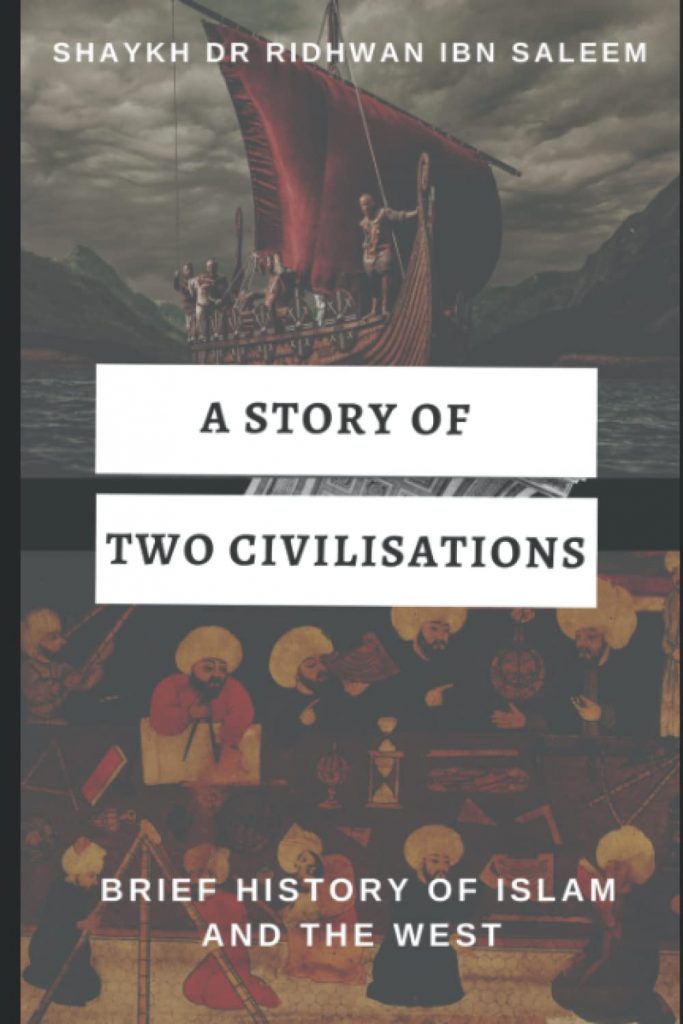
Book by Dr Ridhwan: A story of two civilisations, A brief history of Islam and the West
Full recording of teachers’ training webinar held of 9 Feb 2025
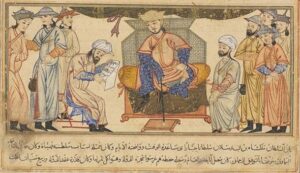
History of Islam & the West 2024-25
Our highly popular history course by Shaykh Dr Ridhwan launching in High Wycombe 6 October 2024. Classes will be monthly, first Sunday of each month. 9am – 1.30 pm, with breaks. Join us on this journey to discover your heritage. It is time to Reclaim, Rename and Rewrite our history, not allow others to write it for us.

